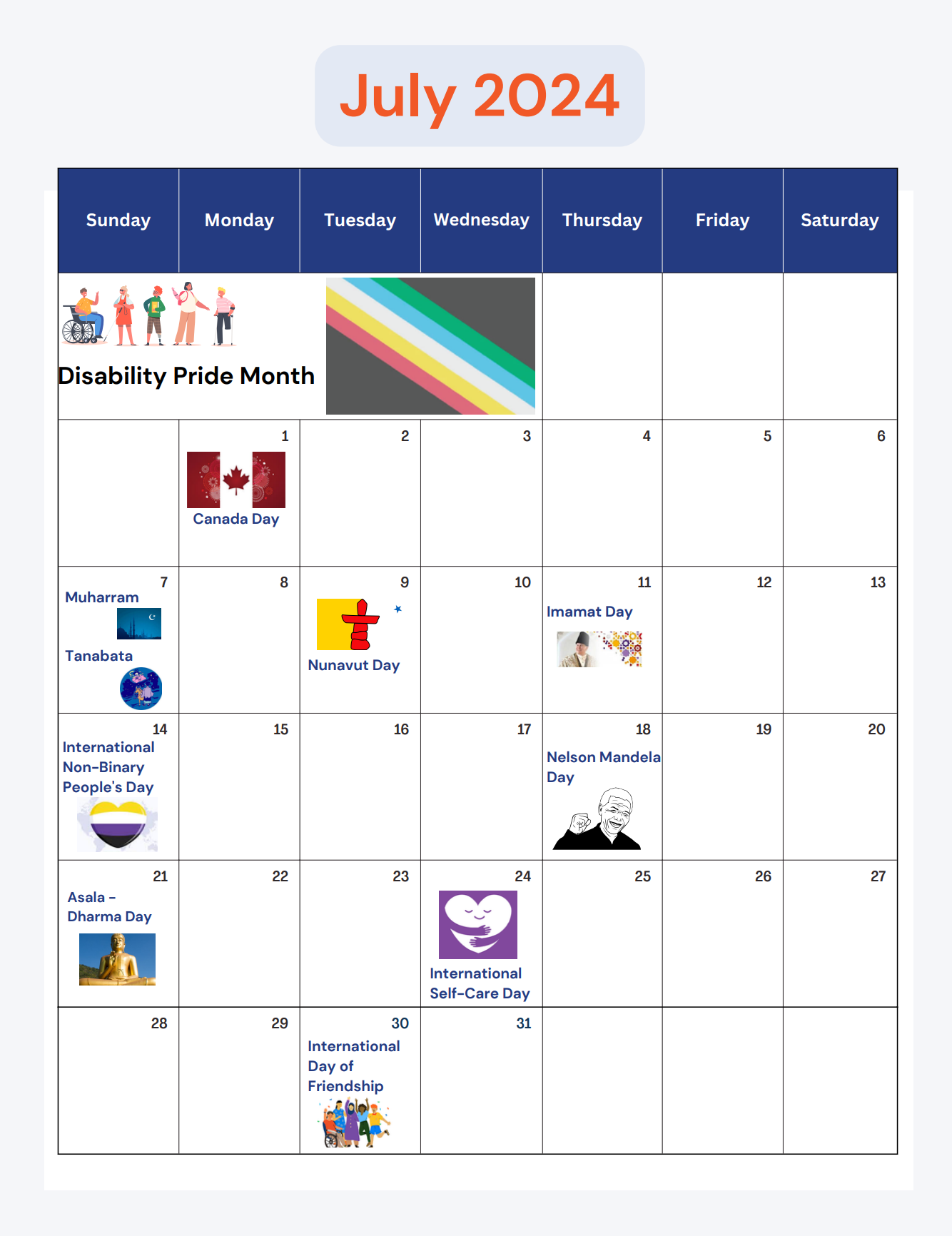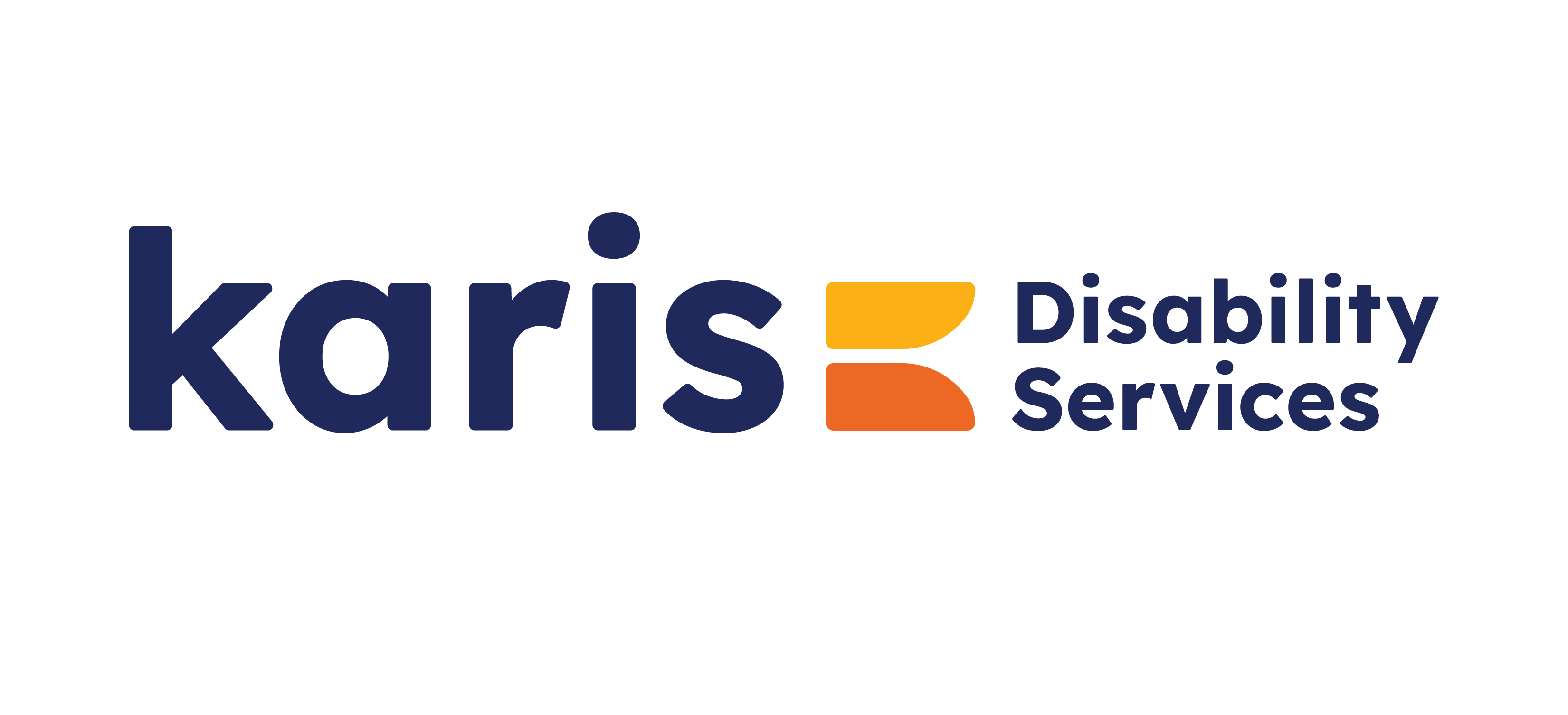The July 2024 Diversity Calendar is attached. Please print it to share with the people you serve, post it in a communal area, and keep it handy to refer to on your own.
I recently heard about the “SAKURA PROJECT” and I’m sharing it here with you, as it reminds me of some of our Diversity Celebrations:
On April 1, 1959, the Japanese ambassador to Canada, Toru-Hagiwara, presented 2000 Japanese Somei-Yoshino Sakura on behalf of the citizens of Tokyo, Japan, as a gift to the citizens of Toronto for their support of Japanese-Canadian refugees after the Second World War. Many of the trees were planted along High Park Trail and around Grenadier Pond which to this day stands as the most impressive grove of sakura // cherry blossom trees in the park and city. Since then, the city of Toronto in conjunction with the Consulate General of Japan created the “Sakura Project” which has continued to plant new Sakura // Cherry Blossom trees in High Park and throughout the city in the spirit of continued friendship between Toronto and the people of Japan. The Sakura – Cherry Blossom is the national flower of Japan and symbolic of spring, a time of renewal, and the fleeting nature of life. Since the life of the cherry blossom bloom is very brief, they remind us to take time to truly appreciate the moments we have with people in our lives and all the beauty it has to offer.


Download the July Diversity Calendar
In July, we celebrate and remember:
- Disability Pride Month: an opportunity to honour the history, achievements, experiences, struggles, and positive contributions of people with disabilities, who deserve to live full, self-determined lives, just like everyone else. The event aims to change the way people think about disability. It promotes all types of disability as a natural part of human diversity. Each color on the disability pride flag represents specific disabilities – Red: physical disabilities (cerebral palsy, epilepsy, stroke, etc.); Gold: cognitive and intellectual disabilities (autism, brain injury, ADHD, FASD, dementia, etc.); White: nonvisible and undiagnosed disabilities (chronic fatigue, chronic pain, MS, anxiety, depression, PTSD, etc.); Blue: psychiatric disabilities (borderline personality disorder, schizophrenia, OCD, bipolar disorder, eating disorders, etc.); Green: sensory disabilities (parasomnia, blindness, deafness, etc.); Black: mourning (for ableist violence, abuse victims, negligence, etc.). July is Disability Pride Month because the work of Canadians with disabilities resulted in the “Accessible Canada Act” that came into force on July 11, 2019. Twenty-two per cent (6.2 million) of Canadians live with a disability, and this number is expected to rise. Canadians with disabilities are an essential and valuable part of the fabric of Canadian society; however, they face barriers in employment, housing, provision of services, bodily autonomy and reproductive rights, as well as other issues related to poverty and discrimination. These barriers can be worsened when combined with discrimination on the basis of intersecting identities such as race, gender, indigeneity, or age. Disability is not only an identity, but also a community with a diverse culture all their own to be proud of and celebrated. Disability culture is about visibility and self-value. Disability Pride Month is a time for recognizing these facts and listening to people with disabilities.
- Canada Day on July 1: a day commemorating the enactment of the Constitution Act in 1867 thereby establishing Canada as a new federation with its own constitution. Get caught up in the excitement and energy of the Canada Day celebrations. Whether with family or friends, take part in free events that showcase our country’s diversity, music and culture, including fireworks, parades, barbecues, concerts, carnivals, fairs, picnics, etc.
- Muharram from July 7 to August 4: the start of the New Islamic Year and a time of mourning and peace. It is also one of the four sacred months of the year where good deeds are multiplied, and warfare is forbidden. (Islam)
- Tanabata on July 7: also known as the Star Festival, celebrating an ancient Chinese legend about star-crossed lovers, Altair and Vega. In Japan, these two stars are called Orihime and Hikoboshi. According to the legend, the lovers are separated by the Milky Way, and can only meet on one night a year.
- Nunavut Day on July 9: a day to commemorate the passing of the Nunavut Land Claims Agreement Act and the Nunavut Act in 1993. It is a holiday in recognition of Nunavut’s history and traditions.
- Imamat Day on July 11: also known as Khushali, is celebrated to mark the anniversary of the day that the present Imam/spiritual leader, succeeded his predecessor to become the Imam of the Time. (Ismaili Muslim)
- International Non-Binary People’s Day on July 14: recognized around the world, this occasion shines a light on non-binary people (who do not identify exclusively as a man or as a woman), and celebrates the rich diversity of the community.
- Nelson Mandela Day on July 18: declared by the UN, a day to honour the legacy of Nelson Mandela and his values, through volunteering and community service, to fight poverty and promote peace, reconciliation, and cultural diversity.
- Asala / Dharma Day on July 21: this celebration is considered a time to reflect on the scriptures and express gratitude for the Buddha’s teachings. (Buddhism)
- International Self-Care Day on July 24: raising awareness of the important role self-care plays in the health of Canadians and the sustainability of the health care system. The Seven Pillars of Self-Care are: Health Literacy, Mental Well-Being, Physical Activity, Healthy Eating, Risk Avoidance, Good Hygiene, Optimal Use of Products and Services. In particular, Health Literacy, is a significant factor in health care disparity and equity.
- International Day of Friendship on July 30: proclaimed in 2011 by the UN General Assembly, with the idea that friendship between peoples, countries, cultures and individuals can inspire peace efforts and build bridges between communities. Our world faces many challenges, crises and forces of division — such as poverty, violence, and human rights abuses — among many others — that undermine peace, security, development and social harmony. To confront those crises and challenges, their root causes must be addressed by promoting and defending a shared spirit of human solidarity that takes many forms — the simplest of which is friendship. By accumulating bonds of camaraderie and developing strong ties of trust, we can contribute to the fundamental shifts that are urgently needed to achieve lasting stability, weave a safety net that will protect us all, and generate passion for a better world where all are united for the greater good.
“The best thing about Karis Disability Services is the people – both those who use services and those who provide services. We honour the diverse, intersectional, and inclusive community we live in. We also celebrate each person’s unique perspective, history, culture, faith, and identity; and there is so much beauty in that diversity!”
Catalina Hernandez, on behalf of Karis Disability Services Diversity and Inclusion Working Group
